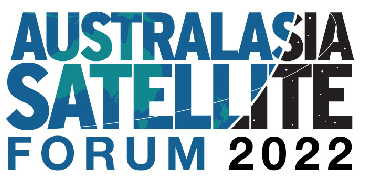|
WARPSPACE Has Completed the
Study Contract of Cislunar Optical Communication
Commissioned by JAXA
June 1, 2022
WARPSPACE was commissioned by the
Japan Aerospace Exploration Agency (JAXA) to study the
practical application of a communication system linking
the Moon and Earth*1. WARPSPACE conducted a conceptual
study and verification of the practical application of
the communication system for various lunar missions from
different perspectives, including technology and cost,
and delivered a report of the results to JAXA.
In this report, we examined
possible options for communication systems on the Moon
for (1) Near Lunar Communications, (2) Lunar-Earth
Communications, and (3) Lunar Surface Communications and
evaluated the trade-offs in terms of cost,
sustainability of communication conditions, and
maintainability for each combination of these options.
Currently, international
exploration programs to the Moon and Mars are underway,
led by the Artemis Project. In this context, the private
sector's commitment is increasing in Japan and abroad, a
change from the past when government agencies took the
lead in everything from planning to development. In
recent years, the United States, in particular, has been
promoting "anchor tenancy," in which the government
provides a certain level of procurement compensation for
private-sector industrial activities to stabilize the
industrial base. Anchor tenancy allows the government to
improve cost performance while controlling the risks of
its programs while at the same time allowing companies
to promote their technologies and businesses. As a
result, the U.S. space industry remains highly
competitive internationally.
In Japan, we hope that the Moon
exploration program will be further strengthened by the
participation of various private companies, starting
with this contract, and by the cooperation of private
companies as they gain international competitiveness. In
this study, WARPSPACE examined designs for various
missions to the Moon by different private companies.
WARPSPACE’s CTO Akihiro Nagata
commented on the contents of this report and prospects
from a technical perspective.
“Until now, radio wave
communications have been used mainly for lunar and deep
space exploration. Of course, this is the current
standard for communications in space, and there are many
examples of actual use. But there are issues with
communication capacity and the size of the terminals.
There is a concern that the current capacity and
terminal size will not be sufficient to meet the demand
in the coming decades when various types of private
research and exploration on the Cis-lunar and the Moon
will be in full swing. On the other hand, optical
communication has a high capacity and smaller terminals
than radio waves. You can configure those terminals for
long-distance communication with low power consumption.
Therefore, this report has considered radio waves and
optical communications as essential communication
options. We still see a challenge with the optical
communication networks in space to be put into practical
use, but we aim to be the first private company in the
world to launch commercial services based on a minimum
viable product (MVP) strategy. In particular, as each
country and company competes with emerging in its
technological field, we need to be the de facto standard
for optical communications in space and be the first to
enter service.
WARPSPACE will continue to work on
developing the "WarpHub InterSat" optical communication
service in space while collaborating with governments
and private businesses around the world to contribute to
this significant global challenge.
ASF
2022
REGISTER NOW!

14 & 15 June 2022
|
